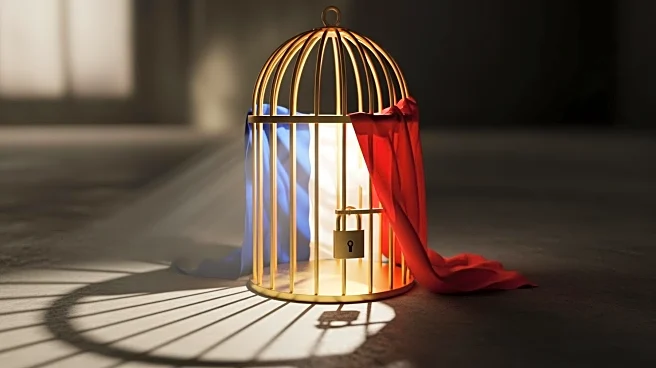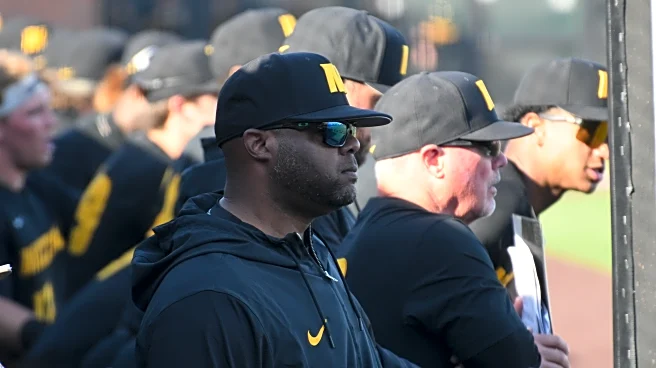What's Happening?
Two French citizens, Cécile Kohler and Jacques Paris, have been detained in Iran for over three years on charges of espionage. Recently, an Iranian court sentenced them to decades in prison, with Kohler facing 20 years and Paris 17 years. Their families
have expressed grave concern over their deteriorating mental and physical health, stating that both individuals have reached their limit of endurance. The French Foreign Ministry has condemned the sentences as arbitrary and unfounded, demanding their immediate release. The case has been tried behind closed doors, limiting access to evidence and legal representation, which is a common practice in Iran's Revolutionary Courts.
Why It's Important?
The imprisonment of Kohler and Paris highlights ongoing tensions between Iran and Western nations, particularly France. The situation underscores the broader issue of foreign nationals being used as leverage in international diplomacy. The French government has labeled the detention as unjustified, and the case has drawn attention to Iran's judicial practices, which are often criticized for lack of transparency. The potential for a prisoner swap between France and Iran could impact diplomatic relations and set precedents for future negotiations involving detained citizens.
What's Next?
The families of Kohler and Paris are urging immediate action, as their loved ones' conditions are reportedly dire. The French government may increase diplomatic pressure on Iran to secure their release. There is also the possibility of a prisoner swap, as Iran has expressed interest in exchanging Kohler and Paris for Mahdieh Esfandiari, an Iranian national detained in France. French President Emmanuel Macron has indicated a cautious optimism about the prospect of their release, but the situation remains uncertain.
Beyond the Headlines
The case raises ethical questions about the use of foreign detainees as political bargaining chips. It also highlights the challenges faced by individuals caught in geopolitical conflicts, where legal processes may be compromised. The families' public appeal for help reflects the human cost of international diplomacy and the urgent need for transparent legal proceedings.
















